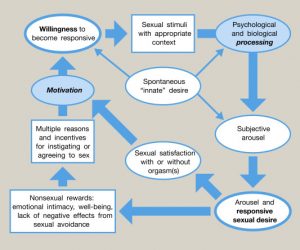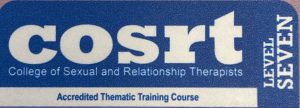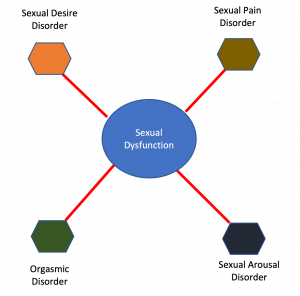What is Psychosexual Therapy?
Sometimes known as ‘Sex Therapy’, is about exploring any sexual issues within a safe secure space, providing a non-judgemental approach to discovering the answer to what may be causing the problem. For example, low self-esteem, lacking confidence, relationship communication difficulties. Psychosexual therapy can also support clients working through their sexual identity or sexuality.
I have a “Postgraduate Certificate in Clinical Sexology”, level 7 which is accredited with the following institutions.
I work with individuals and couples to support them through whatever difficulties they are experiencing. Working towards overcoming, gaining r esolution, and building a new process to enable a happier, healthier, and fulfilling sex life. Couples trying to overcome communication issues or any sexual difficulties, I will endeavour to help build a stronger open relationship enhancing their sex lives.
esolution, and building a new process to enable a happier, healthier, and fulfilling sex life. Couples trying to overcome communication issues or any sexual difficulties, I will endeavour to help build a stronger open relationship enhancing their sex lives.
 Sex can be a difficult subject to discuss even with our partners, whom we love dearly. Bringing up the subject of sex can be uncomfortable and bring about insecurity, fear, judgements, and embarrassment.
Sex can be a difficult subject to discuss even with our partners, whom we love dearly. Bringing up the subject of sex can be uncomfortable and bring about insecurity, fear, judgements, and embarrassment.
What makes it difficult to talk about sex, our desires, our preferences our fears, with our partners?
Working in a positive non-judgemental way I have experience of working with sexual diversity, including gender, sexual & relationship diversity, (GSRD), religion and culture. Relationships can become multi-faceted, polyamorous, consensual non-monogamy, for example and those who are engaged in BDSM & Kink.
The cause of sexual dysfunction is common in both women and men, and these problems can be due to physical, medical, or psychological difficulties. Physical problems that can impair a healthy sex life could be a bad back, joint issues, etc. Certain Medical conditions, such as diabetes, heart disease, hormonal changes, can also impact upon our sexual satisfaction. Depression, anxiety, body dysmorphia, (focusing or obsessing on certain body flaws) are psychological issues that impact upon our sexual satisfaction.
There are four main types or categories of sexual dysfunction:
Desire disorders
These disorders affect sexual desire and interest in sex, are also known as libido disorders or low libido. Low oestrogen and testosterone levels can cause decreased libido, as can hormonal changes, medical conditions (like diabetes and heart disease), relationship problems, sexual inhibitions, fatigue, fear, depression, and anxiety, among other things.
Arousal disorders
These disorders make it difficult or impossible to become physically aroused during sexual activity and can occur in both men and women. The most common type in men is erectile dysfunction. When a person has arousal disorder, he or she may be interested in sexual activity, but be unable to gain any physical satisfaction from it.
Orgasm disorders
These involve the absence of orgasm or delayed orgasm, are a common problem with women, but they can also occur in men. Pain during sexual activity, stress, fatigue, hormonal changes and reduced libido can all lead to delayed or absent orgasm.
Pain disorders
These involve pain during intercourse, can affect both men and women. In women, pain may be caused by vaginal dryness, vaginismus (a condition that affects the vaginal muscles), urinary tract infections (UTIs), hormonal changes during menopause, and other conditions. In men, pain may be caused by Peyronie’s disease (physical damage to the penis), infections like UTIs, prostatitis and yeast infections, genital herpes and skin conditions.
If you would like to discuss any issues you may be experiencing around your sexuality or sex life, then please feel free to contact on my mobile or via email.
MOBILE: 07786 513973
PHIL@BENGE.ORG.UK





